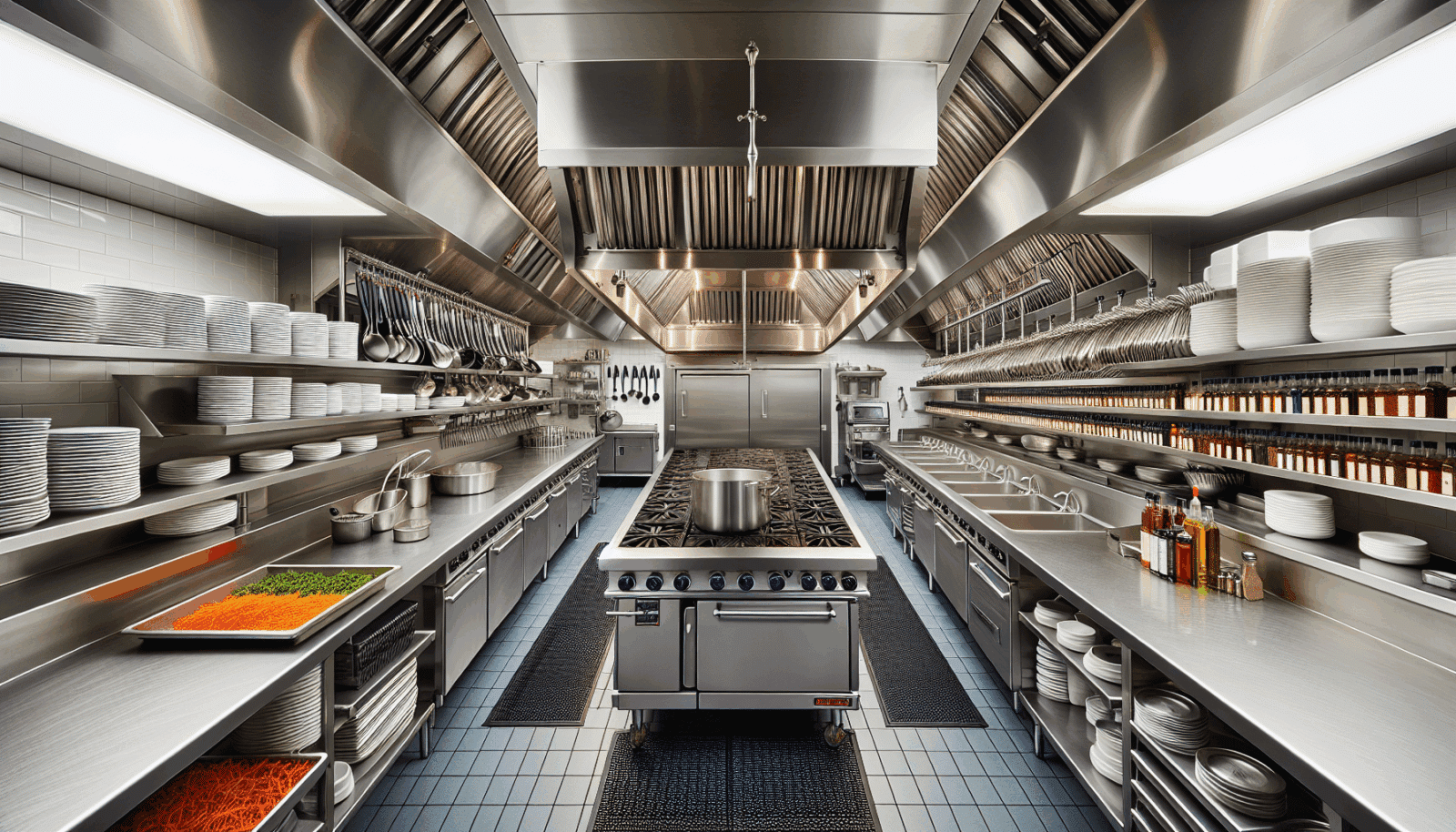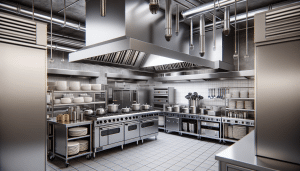At Utah Hood Cleaning, we believe that maintaining your Kitchen Exhaust system is crucial for safety and efficiency, but it’s often overlooked by many homeowners. Clogged and dirty Exhaust systems can lead to potential fire hazards and even increase energy consumption. Fortunately, we’re here to help you with top tips and expert advice. Our guidelines are crafted specifically for homeowners willing to invest in the longevity of their kitchen equipment.
Understanding the Basics
Before we dive into maintenance tips, let’s understand how kitchen Exhaust systems work. These systems are designed to remove airborne Grease, combustion products, fumes, smoke, odors, heat, and steam from the air. Therefore, their functionality is essential for a healthy cooking environment. Regular maintenance ensures that these systems operate optimally, preventing grease buildup and potential hazards. It’s important to familiarize yourself with the components, including the hood, filters, ductwork, and exhaust fan, to better manage your system’s upkeep.
Moreover, keeping these components clean not only enhances the system’s performance but also prolongs its lifespan. Neglecting maintenance can lead to increased wear and tear, ultimately causing more frequent and costly repairs. So, let’s explore the specific steps to maintaining your kitchen exhaust system efficiently.
Regular Inspection is Key
Conducting routine inspections of your kitchen exhaust system significantly extends its life. We recommend setting up a monthly schedule to inspect various components of the system. Focus on identifying signs of grease buildup, unusual noises, or diminished airflow.
Regular inspections allow you to catch issues before they escalate into serious problems. For instance, even minor blockages in the system can cause it to overwork, leading to increased energy bills and potential system failure. By identifying these issues early, homeowners can address minor repairs without needing more extensive interventions.
Change and Clean Filters
Maintaining clean filters is vital for efficient kitchen exhaust system operation. Blocked filters restrict airflow, causing the system to work harder to clear the air. We recommend cleaning metal filters every two weeks in hot, soapy water.
Changing and cleaning filters isn’t just about maintaining performance; it’s also about ensuring the air in your kitchen remains clean and safe to breathe. Remember, a cleaner kitchen environment contributes to healthier living spaces for you and your family.
Schedule Professional Cleaning
While DIY maintenance is crucial, scheduling professional cleaning Services is equally important. Professionals have the tools and expertise to perform a deep clean of your exhaust system, reaching areas that aren’t accessible for a typical homeowner.
By investing in regular professional cleaning, you’re ensuring that your system is thoroughly inspected and cleaned, preventing grease from building up in crucial areas. Regular professional cleanings also help in identifying potential issues before they become major problems, saving you significant repair costs in the long run.
Understanding Cleaning Frequency
Frequency depends on your cooking habits. For frequent or high-volume cooking, a thorough professional cleaning every three months is advisable. For home kitchens with less frequent usage, an annual cleaning might suffice.
Understanding these frequencies helps you develop a maintenance schedule that aligns with your habits, ensuring optimal system performance. Over time, aligning your cleaning frequency with usage not only keeps the system in check but also maximizes efficiency and safety.
Check for Imbalances
Occasionally, exhaust systems can become imbalanced, leading to uneven suction or airflow within your kitchen. Test the airflow by holding a lightweight piece of paper near the intake to ensure it’s being drawn in properly.
If you notice inconsistencies, it’s essential to address them promptly. Imbalances can strain your system and reduce efficiency, driving up electricity bills and shortening the lifespan of your equipment. Addressing these promptly will save you money and time in the long run.
**Inspect Ductwork**
- Regular Check-Ups: Ducts should be inspected regularly for blockages or leaks, as these can decrease efficiency and increase fire risk.
- Professional Cleaning: At least once a year, hire professionals to clean the ducts to remove any grease buildup that simple inspections may miss.
- Seal Leaks: Ensure duct joints are sealed properly to prevent air and smoke from leaking into your home.
- Use Quality Materials: Invest in high-quality materials for ductwork to reduce the likelihood of rust and damage.
- Monitor for Pests: Keep an eye out for signs of pest infestations in your ductwork as pests can damage the system and create additional debris and obstructions.
Clean Exhaust Fan Blades
The exhaust fan is the powerhouse of your kitchen exhaust system, and it needs to be in top shape for the system to work efficiently. Over time, grease and dirt accumulate on the blades, which can impede performance.
Cleaning the fan blades ensures that the fan continues to operate quietly and efficiently. You can do this by carefully wiping each blade with a microfiber cloth, ensuring you don’t disturb the balance of the fan. If the buildup is stubborn, a degreasing agent might be necessary.
Monitor Noise Levels
Noise is often the first sign that something is amiss with your kitchen exhaust system. If your system starts making strange or louder noises, don’t ignore it. These noises could indicate issues like motor troubles or fan blade imbalances.
Addressing noise issues immediately can prevent more significant concerns down the line, ensuring your kitchen exhaust system operates quietly and efficiently. It’s always better to handle minor repairs than face the need for major replacements.
Final Thoughts on Kitchen Exhaust System Maintenance
Regular maintenance of your kitchen exhaust system ensures longevity and top performance. We at Utah Hood Cleaning are always here to help with this important task. For professional assistance, Contact Us by phone at 801-853-8155 or Request a Free Quote.




